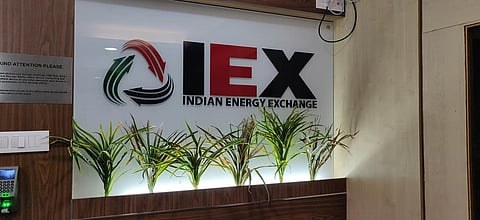Forging the future
As India cruises towards the vision of Viksit Bharat by 2047, industry and academia stand at the forefront of an unparalleled opportunity to shape the nation’s future. By working together to redefine business leadership, they can help transform this vision into reality, not only by preparing future-ready leaders but by strengthening the very fabric of India Inc.
Through deeper collaboration, they can drive innovation, enhance competitiveness and equip the next generation with critical skills to thrive in a fast-evolving global economy. This partnership is essential to unlocking India’s full human capital potential, fostering sustainable growth, creating abundant opportunities for the nation’s youth, and securing the country’s leadership on the global stage.
Blending theory with practice: Designing for future demands: Education is no longer about just mastering theory – it’s about applying that theory to real-world challenges. To stay relevant, academic institutions must design curricula that are informed by industry needs. Here, industry inputs become indispensable.
Forward-looking organisations are now stepping up to co-develop programmes that incorporate crucial areas like digital transformation, strategic thinking, data analytics, emotional intelligence, holistic thinking approach and sustainable business practices – skills that are no longer optional but essential.
Beyond advisory roles, industry professionals are increasingly getting involved in academics, contributing directly to course development, providing real-world case studies, and even teaching specialised modules.
This integration of industry expertise ensures that what students learn in the classroom is not only relevant but also applicable to the fast-changing dynamics of modern business.
Real-time learning: Experience from industry leaders: One of the most impactful outcomes of industry-academia collaboration is the real-time knowledge transfer that occurs through guest lectures and workshops. These sessions provide students with unprecedented access to the minds of top business leaders.
Imagine sitting in a classroom and being addressed by the CEO/CHROs/CXOs of Indian and global firms. These experiences offer invaluable insights that go far beyond textbooks – exposing students to the real-world strategies, decisions, and challenges that define today’s business leaders.
This direct connection to the frontlines of business gives students a competitive edge.
Driving innovation: Collaborative research for real-world solutions: Industry-academia collaboration isn’t just about education – it’s about innovation. Businesses are increasingly partnering with universities to tackle their most pressing challenges, from optimising supply chains to leveraging AI in customer service.
These collaborations provide students with the opportunity to work on cutting-edge projects that push the boundaries of business innovation.
For instance, a university might collaborate with a tech company to develop an AI-based customer support system. In such a scenario, students get hands-on experience with advanced technology while contributing to real-world solutions that could transform industries. This synergy between education and practical application not only strengthens students’ skills but also drives business success.
Preparing for the future: The imperative of collaboration: The ultimate goal of these collaborations is to produce managers and leaders who are not only equipped with knowledge but also capable of strategic thinking, decisive action, risk taking abilities and innovation.
As the demands of the global business environment continue to evolve, the emphasis must be on preparing students not just for the jobs of today, but for the leadership challenges of tomorrow.
At the helm of change: To facilitate a smooth transition for college students into the corporate world, India’s academic institutions are increasingly evolving their course structures to better align with industry needs.
Institutions like NTPC School of Business (NSB), National Power Training Institute (NPTI), University of Petroleum and Energy Studies (UPES) have successfully blended theoretical knowledge with practical, real-world applications, empowering students to embark confidently on their professional journeys.
By co-developing industry-relevant curricula, offering real-world experience, and providing opportunities for hands-on research, academic institutions are producing graduates, who are agile, forward-thinking, and ready to lead.
With curricula that seamlessly match industry demands, organisations like the Indian Energy Exchange actively recruit emerging talent, ensuring a steady pipeline of well-prepared graduates all set to create a strong impact in the corporate world.
In today’s fast-paced economy, the collaboration between industry and academia is not a luxury – it’s a necessity.

